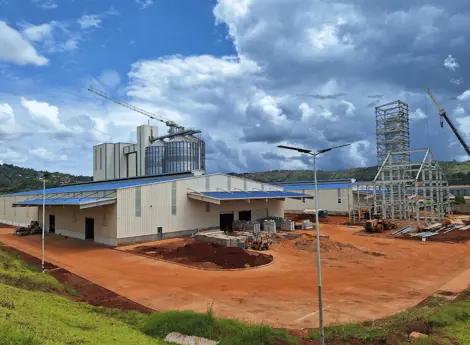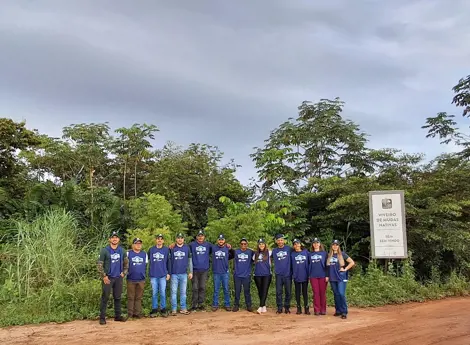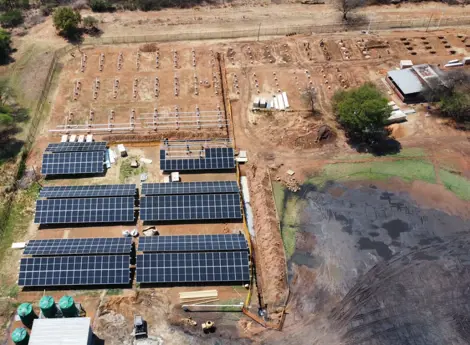Standing on the shoulders of Giants
In the countryside around Beuningen, a Dutch town in the province of Gelderland, you’ll find De Heus’ Swine Nutrition Centre ‘De Elsenpas’. A seemingly ordinary modern-day swine farm – one of around 3,600 in the Netherlands. But if you look more closely, the observant viewer will notice the 30+ feed silos huddled to the left of the main building. A hint that something unusual is taking place inside.
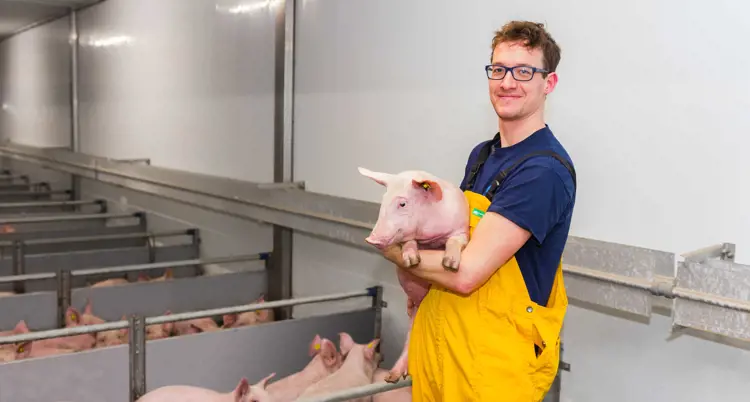
For over 4 generations, De Heus has worked together with farmers, turning the challenges of their time into fuel for innovation-led solutions for progress. The roots of the family business can be traced back over a century ago to the Netherlands – the world’s current second biggest exporter of agricultural products.
When you take a moment to recognise that the Netherlands’ landmass fits close to 250 times inside agricultural giant USA, you might think there was something in Dutch water to achieve that level of efficiency. In fact, it is all the culmination of hard work, entrepreneurship, knowledge passed down from generation to generation and continuous collaboration between farmers, agricultural businesses and academia in finding solutions.
In recent years, there has been rising social awareness about environmental issues surrounding the livestock sector’s products and production methods in the Netherlands. “Their license to produce in the Netherlands is not as self-evident as it once was,” Johan Zonderland of De Heus Animal Nutrition admits. “Increasing awareness among NGOs and consumers about issues like climate change, greenhouse gas emissions and animal welfare is driving us to find solutions at the interface of farmers and society.”
R&D in the eye of societal debate
To help find solutions for the challenges of today’s pig farmers, De Heus opened its new Swine Nutrition centre De Elsenpas in 2019. “Our primary focus is conducting nutritional research related to practical issues our customers face every day,” says Zonderland. As Team Leader R&D Swine, he has been involved with the R&D centre since its conception.
De Elsenpas
De Elsenpas operates as a conventional, modern farm and simultaneously forms the basis for all of De Heus’ international research activities for pig feed. The farm is designed to meet the highest standards in animal welfare and biosecurity, and is equipped with technological innovations such as solar panels, air scrubbers to reduce greenhouse gas emissions, and a heat-circulation system to use extracted heat from outgoing air to heat up different areas of the farm, such as the nursery and farrowing units. Thanks to these technologies, De Elsenpas generates 4 times more energy than its own expenditure.
“Ideally, we come up with innovations that can be introduced in as many countries as possible.”
“Among farmers around the world, some issues are more common than others and require feed and management solutions that can be implemented in most countries,” says Zonderland. Matters like feed schemes for sows or additives to improve piglet health, for example. “Others are more complex and require specific solutions that fit an individual farmer’s situation. Nutritional requirements for pigs depend on farm specific circumstances.”
The research team aims to find integral solutions that tackle multiple challenges at the same time. “In the case of the Netherlands, for example, we also research feed solutions that go beyond nutritional aspects and feed conversion efficiency. On an animal level, this means feed concepts that promise better feed conversion and lower CO2 emissions. In terms of resources, this means incorporating sustainably sourced raw materials – or even better, using residual flows from the food industry.”
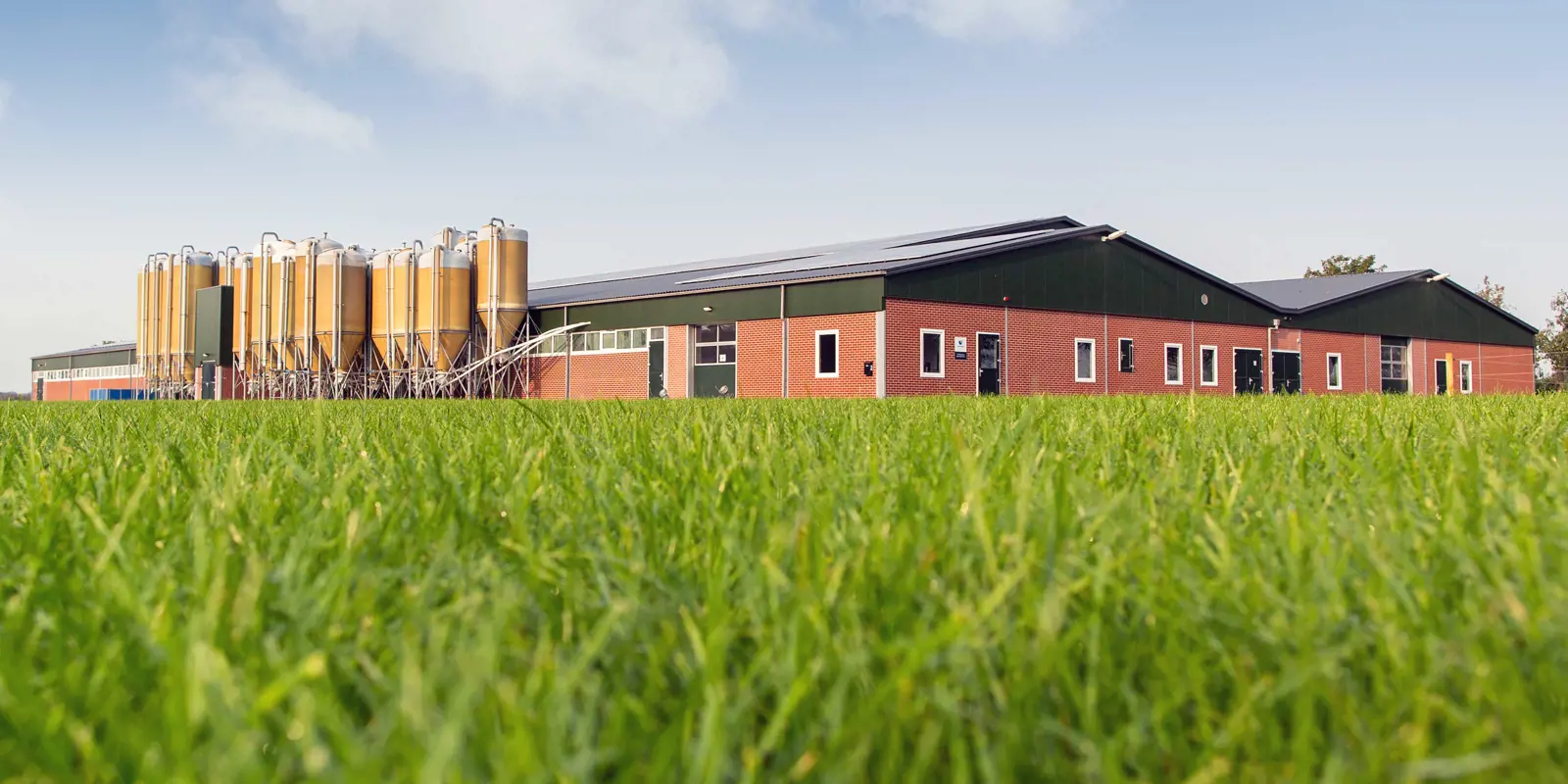
Research at the interface of science and practice
“In the past, we would do our research on commercial pig farms, which had its limitations,” Zonderland explains. The main problem was that the researchers couldn’t do follow up research on the production of sows into weaned piglets and finisher pigs. De Elsenpas can accommodate 250 sows with their piglets, 72 rearing gilts and 900 finisher pigs. “This allows us to see and monitor the effects of sow diets in performance of their offspring all the way up to slaughter results from the finisher pigs.”
In charge of daily operations at De Elsenpas is Zias Lukasse, who landed the job of farm manager before a farm even existed. “I applied for a job at De Heus in 2018. At the time, there were already talks about a research centre and it was clear that the person who’d get the job would be involved from the very start.”
While Lukasse had prior experience working at pig farms and knew his way around the animals, their housing was a different matter. “I was in for a treat,” he grins. “I learned so much. Not only about the pig sector, but also about the construction and infrastructure of pig housing. I now know all the facilities like the back of my hand.” That includes the climate control systems and the feeding machines, which are crucial to carrying out the second part of the job he was hired to do – supporting the research of De Heus’ Global R&D Swine.
Where the magic happens
In the heart of the facilities is the so-called voerkeuken (feed kitchen), centred around a computer-controlled feed system connected to the 32 feed silos outside. “This system weighs and mixes any complete feed we select,” Lukasse explains. “We have individually controlled feed stations, which enables the research team to carry out multiple precision feed studies at the same time.”
Each individual animal is identifiable through an RFID-chip, which makes it possible to collect and analyse data at individual animal level from each step in the pig’s lifecycle - from genetic origin to weight progression and growth results. “This set-up enables us to determine long-term effects and discover new connections and insights, accelerating the growth of knowledge without the need for specific research.”
Taking it global, only a matter of time
Zonderland expects developments in the northern European livestock sector are a foretoken for pig sectors in other parts of the world. “For example, fifteen years ago, pig farmers in the Netherlands had to reduce their use of antibiotics, starting with a ban of antibiotics in feed. Some countries are at that point now. We have feed solutions and technical support readily available to raise healthy pigs without the use of antibiotics, and can deliver those overnight.”
While a lot of research at De Elsenpas is closely tied to the challenges of its local customers, Zonderland firmly believes its innovations will be able to help farmers around the world in due course. Which is why, before setting up each research project, his team determines the feasibility of the possible outcome for all De Heus’ business units. “Our research focuses on how something works, regardless of the climatological circumstances. It’s up to each individual business unit to implement a new concept, feed or additive with the support of our global support team of swine product managers and specialists.”
With the research at De Elsenpas, De Heus wants to contribute to solutions for the challenges faced by pig farmers worldwide: an even better use of scarce raw materials, a lowmedication pig chain and a better association with society’s wishes and the natural environment. “Ideally, we come up with innovations that can be introduced in as many countries as possible. We can be proud of the contribution our research makes to improving feed efficiency.”
FEED. Magazine
In this magazine, we share a selection of stories about progress and sustainability from De Heus business units all over the world. We hope that these stories will inspire you





